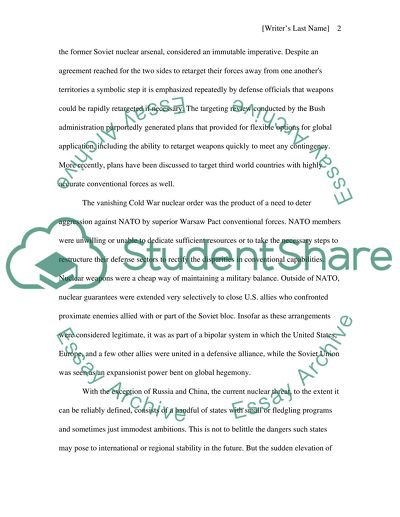Cite this document
(“U.S nuclear weapon policy Essay Example | Topics and Well Written Essays - 1000 words”, n.d.)
Retrieved from https://studentshare.org/politics/1503271-us-nuclear-weapon-policy
Retrieved from https://studentshare.org/politics/1503271-us-nuclear-weapon-policy
(U.S Nuclear Weapon Policy Essay Example | Topics and Well Written Essays - 1000 Words)
https://studentshare.org/politics/1503271-us-nuclear-weapon-policy.
https://studentshare.org/politics/1503271-us-nuclear-weapon-policy.
“U.S Nuclear Weapon Policy Essay Example | Topics and Well Written Essays - 1000 Words”, n.d. https://studentshare.org/politics/1503271-us-nuclear-weapon-policy.


